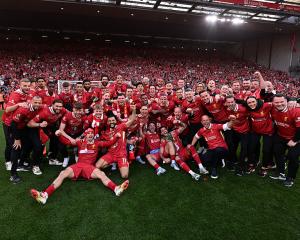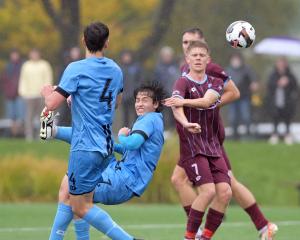
Footballer, nightclub crooner, jet-setting manager, the larger-than-life Terry Venables tested the boundaries of the staid football establishment throughout his career.
Charismatic and innovative, Venables was a big presence on and off the pitch, beloved by players but barely tolerated by the English Football Association.
Venables was born in Dagenham, east London, in 1943, in a time and place when the district was a rich source of footballing talent: as well as himself, future team-mates Jimmy Greaves and Les Allen were born there around that time.
He left school at the age of 15 to sign as an apprentice for Chelsea, making his debut two years later. A polished midfielder, Venables made 202 appearances for Chelsea, and won the League Cup in 1965 — scoring in the final.
He also clearly saw his future in the game being in management: he had studied for and passed his coaching badges by the age of 24.
In 1966 Venables headed across London to join Tottenham Hotspur, who he helped win the FA Cup a year later. After 115 games for Spurs Venables moved to Queens Park Rangers, for whom he played 177 times. He also played twice for England.
Venables also developed a well-founded reputation as a man about town, frequenting nightclubs as often as football pitches. He later owned Scribes West, a prominent club frequented by footballers and journalists.
Both his parents had been singers and Venables had a decent enough voice to be befriended and respected by professional entertainers: he often performed, and in later life, trading on his celebrity, released several singles.
The multi-talented Venables also wrote five novels and dabbled in TV script writing.
Venables’ final club, in 1974, was Crystal Palace, for whom he made 14 appearances in the old Third Division, before being appointed as a coach. Palace belied its lowly status the following year by making the FA Cup semifinal, and in 1976 Venables was named as manager, replacing Malcolm Allison.

Relegation threatened the following season and in October Venables moved to former club QPR, who he steered back to the top tier as champions in 1983, losing an FA Cup final to Spurs along the way.
After guiding QPR to fifth in the league, the lifelong Londoner made a surprise move to Spain to manage Barcelona. During his three years at the helm of the Catalan club Venables led Barca to its first league title since 1974 and first European Cup final since 1961.
Venables returned home in 1987 to another of his former clubs, Spurs. In six years Venables recorded one third-placed finish and won the 1991 FA Cup, but his tangled business dealings — which were to get Venables in trouble many times in his life — resulted in his dismissal in 1993.
In early 1994 Venables was a controversial appointment as manager of the English national team, one MP going so far as to say he was unfit for the job.
His tenure ended after Euro 96, on home soil, where a talented team — containing the mercurial Paul Gascoigne and Alan Shearer and playing in a "Christmas tree" formation — lost to Germany in a penalty shootout in the semifinals. England’s 4-1 win over the Netherlands in the group stage has gone down as one of the national team’s great performances.
Venables was hired by Australia in 1997 but failed to qualify the team for the 1998 World Cup after losing in a playoff to Iran.
Venables’ final coaching spells were back in club football — again with Palace, then Middlesbrough and Leeds. He also had a brief stint as assistant to England coach Steve McClaren in 2006, but left after the team failed to qualify for the European Championship.
Venables became a TV football pundit, and in 2014 he and his second wife opened a hotel in Spain, which they ran for five years until his retirement. Venables died on November 25, aged 80.
Gary Lineker, the leading English striker of Venables’ era, and who he coached for club and country, paid handsome tribute to his old boss.
"The best, most innovative coach that I had the privilege and pleasure of playing for," Lineker posted on X.
"He was much more, though, than just a great manager — he was vibrant, he was charming, he was witty, he was a friend." — Agencies











